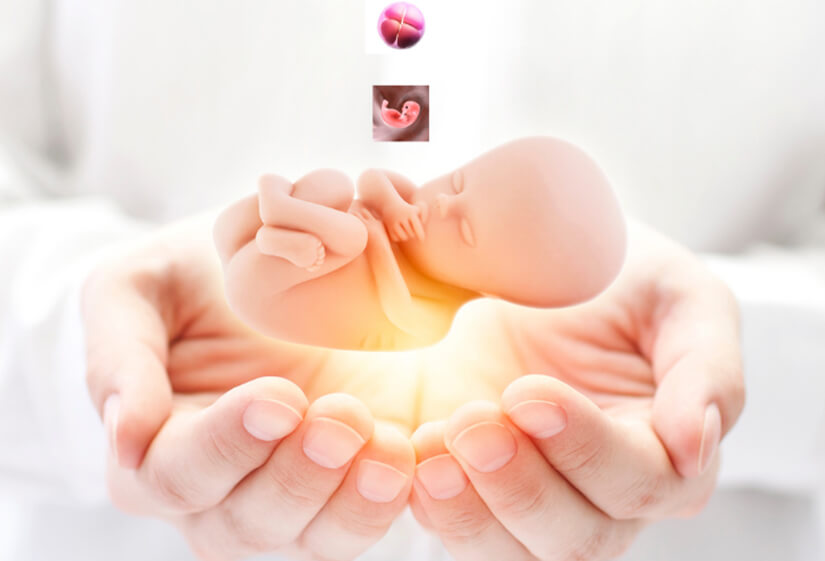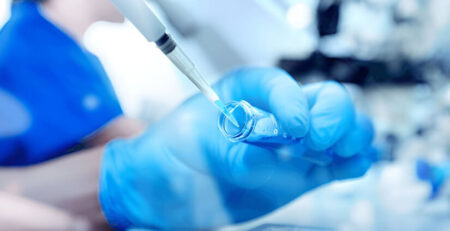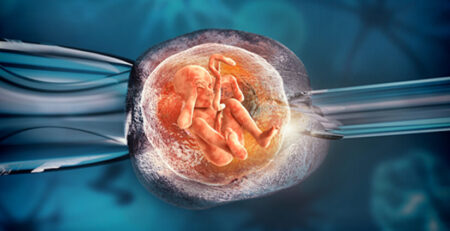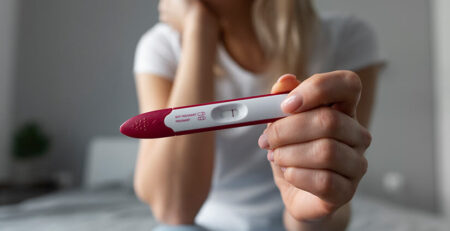What is The Journey of the Egg to The Embryo?
The journey to motherhood is a beautiful and emotional experience for any woman. From the moment of conception to the birth of a new life, it’s an incredible journey filled with joy, anticipation, and wonder.
While many women conceive naturally, some may require assistance from the best IVF doctors in Delhi to help them achieve their dream of having a child.
But have you ever wondered what happens during the egg’s journey to the embryo? Let’s find out!
The Journey of The Egg to The Embryo
The journey of an egg to an embryo is a remarkable process that marks the beginning of a new life. With the help of modern technology and the best IVF doctors in Delhi, understanding the egg’s journey to the embryo is easy. Here’s an explanation of the journey of the egg to the embryo, both in natural conception and through in vitro fertilisation (IVF).
Natural Cycle
The journey of the egg starts with the process of ovulation. Typically, during each menstrual cycle, one egg matures within a fluid-filled sac known as a follicle in the ovaries. When the time is right, the mature egg is released from the ovary and swept into the fallopian tube, where it awaits fertilisation.
Millions of sperm are ejaculated into the vagina. The sperm then swim through the cervix and into the fallopian tubes, propelled by their whip-like tails. Only a few hundred sperm out of the millions will reach the fallopian tubes, where they encounter the awaiting egg, but only one will penetrate the egg and fertilise it.
After fertilisation, the newly formed embryo starts its journey toward the uterus. As it moves through the fallopian tube, it begins to divide rapidly into multiple cells. Over the course of several days, the embryo continues to divide and forms a hollow ball of cells known as a blastocyst.
The blastocyst consists of two distinct groups of cells: the inner cell mass, which will develop into the embryo, and the outer layer, which will form the placenta and other supporting structures.
Around day six or seven, after fertilisation, the blastocyst reaches the uterus. It undergoes a process called implantation, where it attaches to the uterine lining, establishing a connection to the mother’s blood supply.
As the embryo implants itself deeper into the uterine lining, it continues its rapid division. The cells start to differentiate into various specialised types, each destined to contribute to different organs and structures within the body.
IVF Cycle
The first step in the IVF journey is ovulation induction. The IVF consultant in Delhi typically gives fertility medicines to stimulate the ovaries to produce multiple eggs instead of the usual single egg per cycle. This increase boosts the chances of successful fertilisation. Medical professionals monitor this stage using ultrasound and hormone tests to ensure optimal timing for the next step.
The eggs then embark on the next phase of their journey: retrieval. The best IVF doctors in Delhi collect mature eggs from the ovaries using a fine ultrasound-guided needle. Once the eggs are safely collected, they are prepared for fertilisation. Sperm is also prepared, typically through a process called “washing,” which separates the healthiest sperm for fertilisation.
The collected eggs and sperm are then brought together in a laboratory dish for fertilisation. The dish is placed in an incubator, replicating the ideal conditions of the female reproductive system.
In conventional IVF, an embryologist keep washed sperms around the egg for the best one to fertilize it in a dish. However, in cases where there are severe male fertility issues, intracytoplasmic sperm injection (ICSI) may be performed. With ICSI, a single sperm is directly injected into each egg to facilitate fertilisation.
ICSI Procedure
ICSI, procedure involves injecting a single sperm directly into a mature egg, thus bypassing many natural barriers to fertilisation.
In ICSI, the IVF consultant in Delhi gives hormonal medications to stimulate the ovaries, simultaneously encouraging multiple eggs’ growth and maturation.
Once the eggs are matured, they are carefully retrieved under ultrasound guidance through a minor surgical procedure known as egg retrieval. Post retrieval, the eggs are examined under a microscope to identify the mature ones, as only these are suitable for ICSI.
The next stage is fertilisation. The embryologist selects a single sperm, generally based on its motility and morphology, and injects it directly into the egg. The embryos are incubated in a controlled environment that mimics the natural conditions of the female reproductive system. Over several days, the embryos are closely monitored for growth and development.
Embryos are typically graded based on their appearance and cell division. Quality parameters such as the number of cells, symmetry, and fragmentation are considered.
After the monitoring period, the best IVF doctors in Delhi select the highest-quality embryos for transfer. The number of embryos transferred depends on various factors, including the woman’s age, the quality of the embryos, and the couple’s preferences. A thin catheter gently moves The selected embryos into the woman’s uterus.
Donor Egg Treatment
For couples facing infertility or genetic disorders affecting egg quality, donor egg treatment is offered.
Donor egg treatment involves using eggs from a carefully selected donor to achieve pregnancy. The process begins with finding a suitable egg donor through known arrangements or anonymous donation programs.
Once a donor is chosen, the menstrual cycles of the donor and recipient are synchronised using hormonal medications. Dr Rhythm Gupta gives fertility medications to the donor to stimulate her ovaries and produces multiple eggs while the recipient undergoes preparatory medication to prepare her uterus for implantation.
Egg retrieval is performed on the donor, and the collected eggs are fertilised using the sperms from husband of the woman desiring pregnancy. The resulting embryos are monitored and assessed for quality. One or more embryos are transferred to the woman’s uterus, and any remaining viable embryos can be cryopreserved for future use.
Final Words!
The journey of the egg to the embryo is a fascinating process that occurs in the female reproductive system. If you are struggling with fertility issues, consulting the best IVF doctors in Delhi can help you to achieve your dream of having a child.
If you are struggling with infertility or have concerns about your reproductive health, Dr Rhythm Gupta, an IVF specialist in Delhi, is here to help. With her extensive knowledge and experience in the field of assisted reproduction, she can provide you with the guidance and support you need to start your journey towards parenthood.






